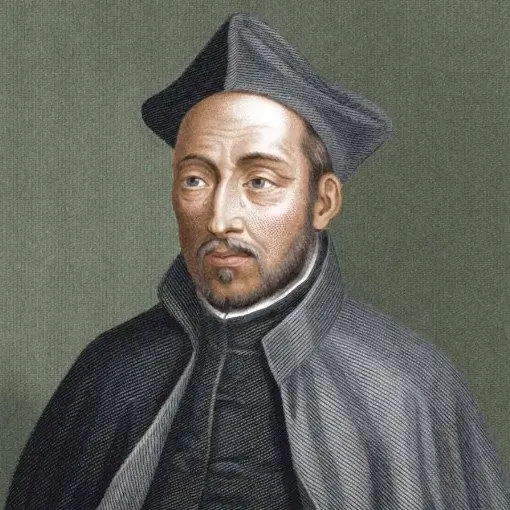- Author Antonio Harrison harrison@cultureoeuvre.com.
- Public 2023-12-16 07:44.
- Last modified 2025-01-22 21:44.
The Jesuit Order became famous for its education, science studies, missionary work and political intrigue. Thanks to the latter, the Order was expelled from Europe, and in 1773 the Pope abolished it.

The Jesuit Order is a Catholic monastic order and was founded by the Basque Ignatius Loyola. The real name of Ignatius is Ignacio Lopez de Loyola, now the Catholic Church venerates him as a saint.
Members of the Order were engaged in the study of natural sciences and were active in missionary work. Each Jesuit monk took four vows - chastity, poverty, obedience in general and obedience specifically to the Pope.
Scientific activity
The scientific works of the members of the Order have survived to this day. For example, the Polish Jesuit Mikhail Boim compiled the book "The Flora of China", where he described and illustrated many plants. Boym was also the author of works on medicine and pharmacology and was the first in the world to introduce pulse measurement into diagnostic practice. Another famous Jesuit scholar was Pierre Teilhard de Chardin. He left behind many books on anthropology, archeology, paleontology, biology and geology.
Political intrigues
In addition to education, science and missionary work, members of the Order led an active political life. In medieval Europe, they became famous as political intriguers who, with the help of their agents, interfered in the internal affairs of many states. In Spain, France, Portugal, there were even Jesuit parties trying to bring the members of the Order to power. Such a gross intervention could not go unnoticed by the European royal courts and resulted in the expulsion of the Jesuits. Another goal of the exile was the desire to take possession of the untold wealth that the Order had managed to accumulate over the years.
Dissolution of the Order
In the end, the Pope decided to dissolve the Order. Europe breathed a sigh of relief. Territorial disputes between Portugal and France ceased, the Catholic powers reconciled with the Roman throne and returned the seized church lands to the Pope.
However, the Jesuit Order exists to this day. According to 2012 data, it has about 18,000 members. Most of the Jesuits are based in Asia (4,000 people) and the United States (3,000 people). The head of the Order bears the title of general. Now the general of the Jesuits is the Spaniard Adolfo Nicholas.
Ignatius Loyola
One cannot speak unambiguously about the personality of the founder of the Order. According to the memoirs of Ignatius Loyola, he received an epiphany, peering into the waters of the Cardener River. There he "was given the understanding of many things," and the moment of insight itself took, in his own words, no more than three minutes.
Loyola had problems with the Inquisition - in 1526 he was imprisoned for 42 days and, on pain of excommunication, was forbidden to instruct and preach his doctrine. Later, Ignatius developed Spiritual Exercises, a technique that, in his opinion, should have led any Christian to the Kingdom of God in just four weeks. During the first week, it was supposed to go through purification, the second - enlightenment, the third - union with God. The fourth week was reserved for Resurrection and Ascension - nothing more, nothing less.






